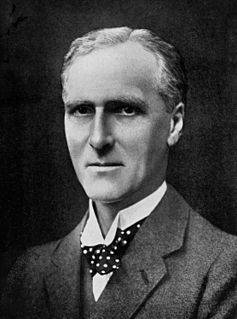A Quote by Ken Wilber
What would it mean if there were a theory that explained everything? And just what does "everything" actually mean, anyway? Would this new theory in physics explain, say the meaning of human poetry? Or how economics work? Or the stages of psychosexual development? Can this new physics explain the currents of ecosystems, or the dynamics of history, or why human wars are so terribly common?
Related Quotes
Even if we ignore the 'non-theoretical' knowledge which we acquire through experience (such as the knowledge of what something tastes like) and concentrate on theoretical knowledge, there is no good reason to think that physics can literally give the theory of everything. Here I want to be really pedantic. Although everything may be subject to physical law, not everything can be explained or described in physical terms. Physics has literally nothing to say about society, morality and the mind, for example - but of course these are parts of 'everything'.
When I was in college, I didn't like physics a lot, and I really wasn't very good at physics. And there were a lot of people around me who were really good at physics: I mean, scary good at physics. And they weren't much help to me, because I would say, 'How do you do this?' They'd say, 'Well, the answer's obvious.'
I would say [to my father], "Why don't you actually take some courses in physics instead of saying [you are not believing in gravity]?" But he would never do it. Businessmen for some reason or other, think, because they're successful in a single direction, that they know everything. You know what I mean? You ever meet people like that?
The thing about physicists is that they tend to think that everything is physics. I don't. That's not what music is to me. You can explain aspects of it in physical terms, including the physics of anatomy: how our bodies move, the torsional moment of inertia, the way you move your body to a beat, the inherent periodicities of the heartbeat, the gait. That's physics, too, I guess - maybe they'd call it biophysics.
We, however, want to become those we are--human beings who are new, unique, incomparable, who give themselves laws, who create themselves. To that end we must become the best learners and discoverers of everything that is lawful and necessary in the world: we must become physicists in order to be able to be creators in this sense--while hitherto all valuations and ideals have been based on ignorance of physics or were constructed so as to contradict it. Therefore: long live physics! And even more so that which compels us to turn to physics--our honesty!
A sound Physics of the Earth should include all the primary considerations of the earth's atmosphere, of the characteristics and continual changes of the earth's external crust, and finally of the origin and development of living organisms. These considerations naturally divide the physics of the earth into three essential parts, the first being a theory of the atmosphere, or Meteorology, the second, a theory of the earth's external crust, or Hydrogeology, and the third, a theory of living organisms, or Biology.


































